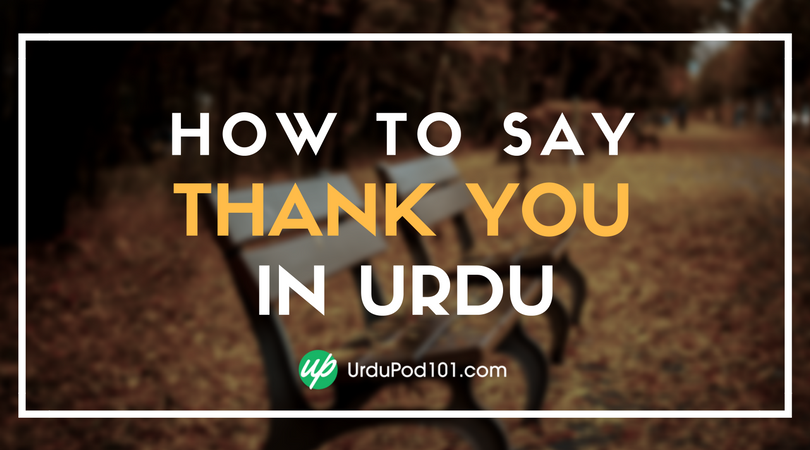Archive for the 'Team UrduPod101' Category
July 17, 2020
The Ultimate Guide to Asking and Giving Directions in Urdu
"If you board the wrong train, it is no use running along the corridor in the other direction."To board the right train and to save the trouble of running in the other direction, you must know how to ask and give directions in Urdu while living or traveling across the Urdu-speaking lands. Nevertheless, the process of learning Urdu directions will require some effort on your part. Here, we’ll introduce you to a few key words, phrases, and sentences to help empower you as you learn Urdu directions.
Table of Contents
Why is it Important to Study Giving and Asking for Directions?
Learning the Four Cardinal Directions in Urdu
The Intercardinal Directions in Urdu
How to Read a Map in Urdu
Indispensable Directional and... Show more
June 29, 2020
Urdu Nouns: An Easy Guide to 100 Commonly Used Nouns in Urdu
Using nouns in your conversations can prove to be quite handy when it comes to communicating with native Urdu speakers. At times, a single noun in the right context can go a long way toward making your point clear. Therefore, by learning 100 important Urdu nouns, you’ll increase your chances of effective communication with native Urdu speakers.
Before we go on to our Urdu nouns list, however, there’s some basic grammar information you should know.
Table of Contents
The Usage and Significance of the Noun as a Part of Speech in Urdu
Food & Restaurants
Talking about Time
Transportation
School Essentials
Jobs & Occupations
Family Members
Body Parts
Miscellaneous Nouns in Urdu
Conclusion
1. The Usage and Significance of the Noun... Show more
April 10, 2020
Essential Vocabulary for Life Events in Urdu
What is the most defining moment you will face this year? From memories that you immortalize in a million photographs, to days you never wish to remember, one thing's for certain: big life events change you. The great poet, Bukowski, said, "We are here to laugh at the odds and live our lives so well, that death will tremble to take us." The older I get, the more I agree with him!
Talking about significant events in our lives is part of every person's journey, regardless of creed or culture. If you're planning to stay in for more than a quick visit, you're sure to need at least a few 'life events' phrases that you can use. After all, many of these are shared experiences, and it's generally expected that we will show up with good manners... Show more
March 30, 2020
Talk About the Weather in Urdu Like a Native
Did you know that every minute of the day, one billion tons of rain falls on the earth? Hard to believe, considering the climate crisis! Of course, all that rain is not equally shared across the planet.
So, would you mention this fascinating fact to your new acquaintance? Well, small talk about local weather is actually a great conversation-starter. Everyone cares about the weather and you’re sure to hear a few interesting opinions! Seasons can be quite unpredictable these days and nobody knows the peculiarities of a region better than the locals.
UrduPod101 will equip you with all the weather vocabulary you need to plan your next adventure. The weather can even be an important discussion that influences your adventure plans. After... Show more
February 1, 2019
Secret Revealed: The Best Way to Learn a Language on Your Own
Can You Really Learn Urdu Alone?
Learning a language on your own or without traditional classroom instruction may seem quite daunting at first. What if you run into questions? How do you stay motivated and on track to achieving goals?
Don’t worry, not only is it possible to learn Urdu or any language without traditional classroom instruction: UrduPod101 has created the world’s most advanced and extensive online language learning system. Not only is UrduPod101 specifically designed to help you with learning a language on your own, it’s actually faster, more convenient, and less expensive than traditional classroom options!
Let’s look at some of the benefits of learning Urdu or any language alone.
Also, don't forget to download your... Show more









